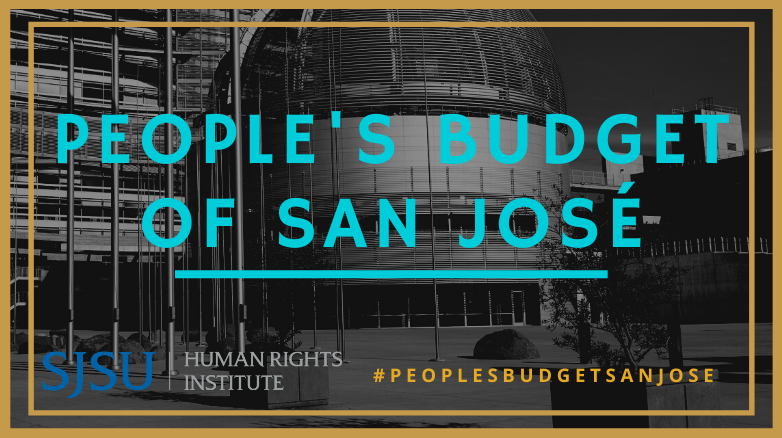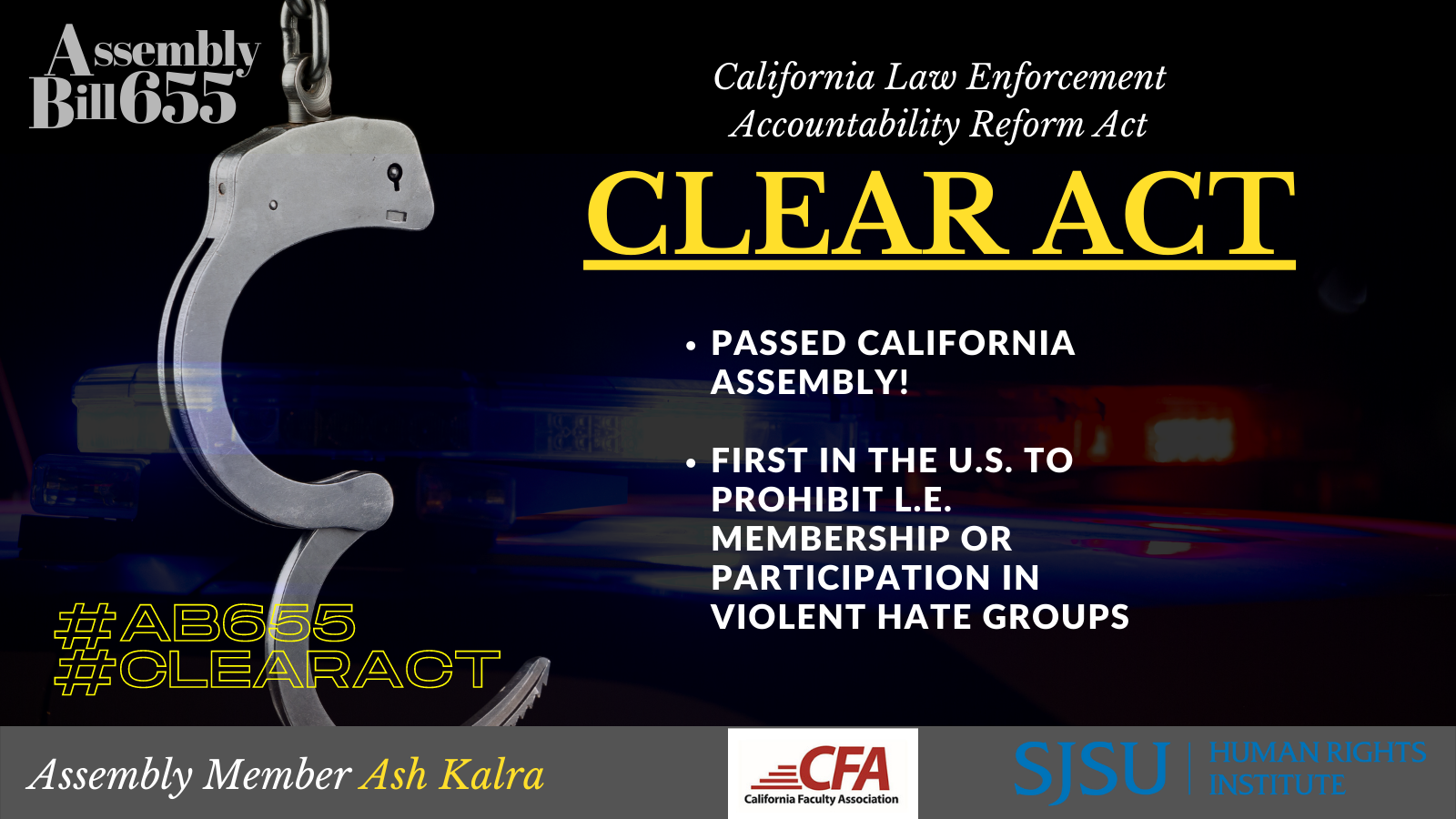Policy Projects
Current Projects
Silicon Valley Pain Index
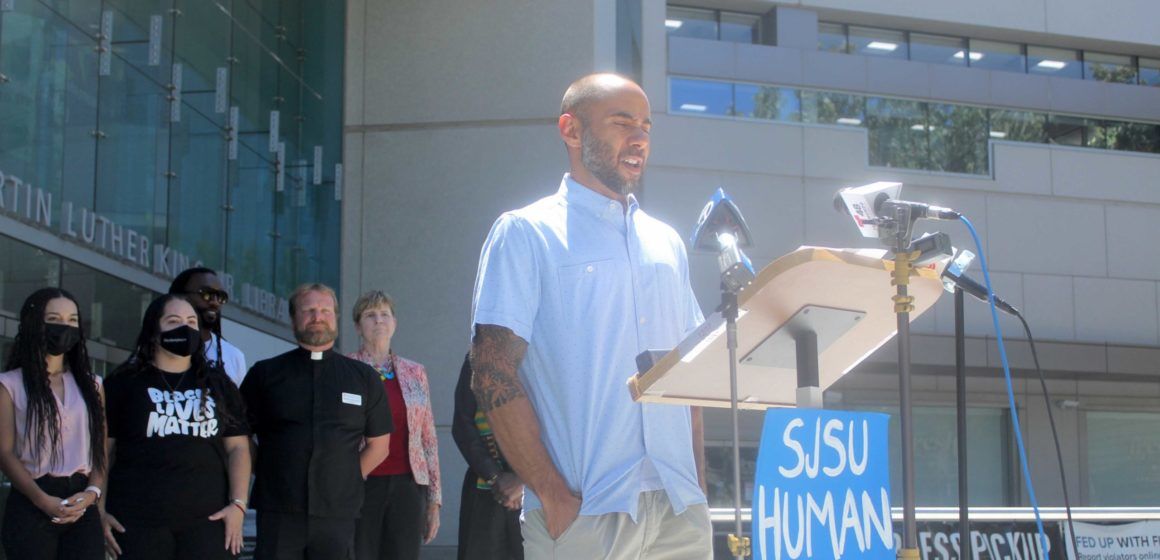
The purposes of the Silicon Valley Pain Index [SVPI] report are to: (1) Provide an efficient, easily digestible, statistical overview
of structured inequalities to inform policy and practice in “Silicon Valley”; (2)
Serve as a measure of Santa Clara County’s performance as a “human rights county”,
which it declared in 2018 in accordance with the International Bill of Human Rights;
and (3) Inspire collaborations between scholars, students, stakeholders, communities,
and policy makers to address inequality and achieve greater human rights practice.
Originally inspired by the murder of George Floyd, as well as Professor Bill Quigley's
Katrina Pain Index following the devastating 2005 hurricane, the yearly Silicon Valley Pain Index [SVPI] illustrates the persistent racial discrimination
and income/wealth inequality that continue to define our region.
SB 1341 and (now) Guaranteed Income for impoverished students in Santa Clara County
In response to the 2021 Silicon Valley Pain Index, we were approached by Senator Dave
Cortese’s office to collaborate on the design of SB 1341: The California Success, Opportunity, and Academic Resilience (CalSOAR) Guaranteed
Income Program. The program would pay a Guaranteed Income of $1000 per month for
the five months between April and August to graduating high school seniors experiencing
housing insecurity in California. The point of the program is to address the rising
housing and food insecurity among our most economically vulnerable young adult/student
populations.
Though the bill failed to pass the Senate Higher Education Committee, a pilot version of the program was passed for Santa Clara County in a unanimous vote of the Board of Supervisors. Please stay tuned for further announcements on this
critical program.
Silicon Valley Pain Index Inspires Guaranteed Income Program For Unhoused Students in Santa Clara County
The Silicon Valley Pain Index, a meta- analysis crafted by San José State University’s Human Rights Institute that revealed Santa Clara County’s growing racial and wealth disparities along with a troubling trend of housing and food insecurity among young adults, inspired a pilot program to serve unhoused students in Santa Clara County that was led by Santa Clara County Supervisor Susan Ellenberg and California State Senator Dave Cortese.
Universal Cannabis Record Clearance in Santa Clara County and California
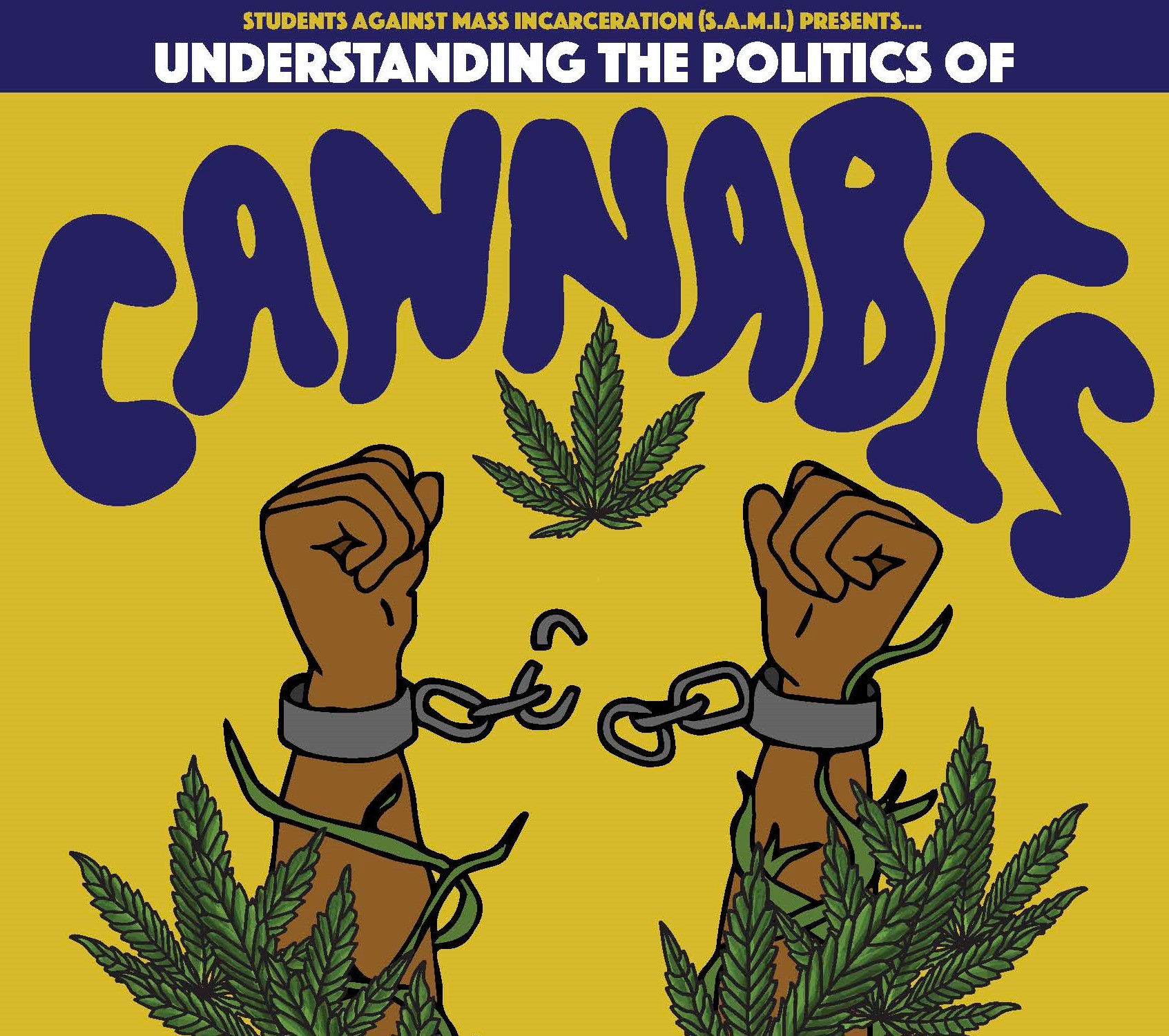 After over 2 years of organizing and research with Human Rights students (Students
Against Mass Incarceration [SAMI]), a coalition* of over 20 community organizations
and cannabis industry leaders, Congressman Ro Khanna, Supervisor Dave Cortese, and
the County DA and Public Defender’s Offices, Santa Clara County proactively expunged or reduced all eligible cannabis records--13,000 cases for over 9,000 people--on April 29th,
2020.
After over 2 years of organizing and research with Human Rights students (Students
Against Mass Incarceration [SAMI]), a coalition* of over 20 community organizations
and cannabis industry leaders, Congressman Ro Khanna, Supervisor Dave Cortese, and
the County DA and Public Defender’s Offices, Santa Clara County proactively expunged or reduced all eligible cannabis records--13,000 cases for over 9,000 people--on April 29th,
2020.
But the job of cannabis record clearance is far from over in California. The HRI is currently researching the status of and barriers to cannabis record clearance in counties across the state (13 county pilot study). The HRI will apply for funding to complete and expand this research when the Department of Cannabis Control [DCC] releases their annual RFP later in 2022, and will be publishing our first applied report and traditional academic article in spring 2023.
AB 1706 Cannabis Crimes Resentencing (Asm. Mia Bonta)
Linked to research on cannabis record clearance, the HRI helped to design and co-sponsored AB 1706 (Asm. Mia Bonta) with the Last Prisoner Project [LPP] to further compel and facilitate cannabis clearance in holdout counties across the state of California. AB 1706 has successfully passed into law, having been signed by the Governor in September 2022.
After Times investigation, law passed to force California to clear pot convictions faster
California has new deadlines to dismiss and seal many cannabis convictions under a law signed this week by Gov. Gavin Newsom. The move comes after a Times investigation found that tens of thousands of Californians still have felonies, misdemeanors and other cannabis convictions on their records. State lawmakers voted unanimously for the legislation, citing The Times investigation in analyses earlier this year.
CA Attorney General's urges prosecuting agencies to work with courts to prioritize relief for Californians with outdated cannabis convictions
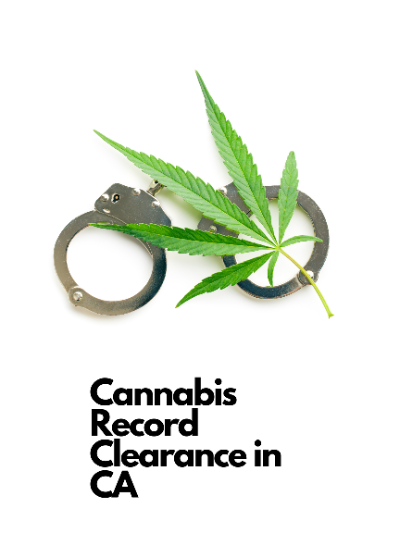 But the job of cannabis record clearance is far from over in California. We are currently
researching the status of and barriers to cannabis record clearance in counties across
the state. Further, we co-sponsored AB 1706 (Asm. Mia Bonta) with the Last Prisoner
Project [LPP] to further compel and facilitate cannabis clearance in holdout counties.
AB 1706 has successfully passed both houses of the legislature and awaits a signature
from the Governor.
But the job of cannabis record clearance is far from over in California. We are currently
researching the status of and barriers to cannabis record clearance in counties across
the state. Further, we co-sponsored AB 1706 (Asm. Mia Bonta) with the Last Prisoner
Project [LPP] to further compel and facilitate cannabis clearance in holdout counties.
AB 1706 has successfully passed both houses of the legislature and awaits a signature
from the Governor.
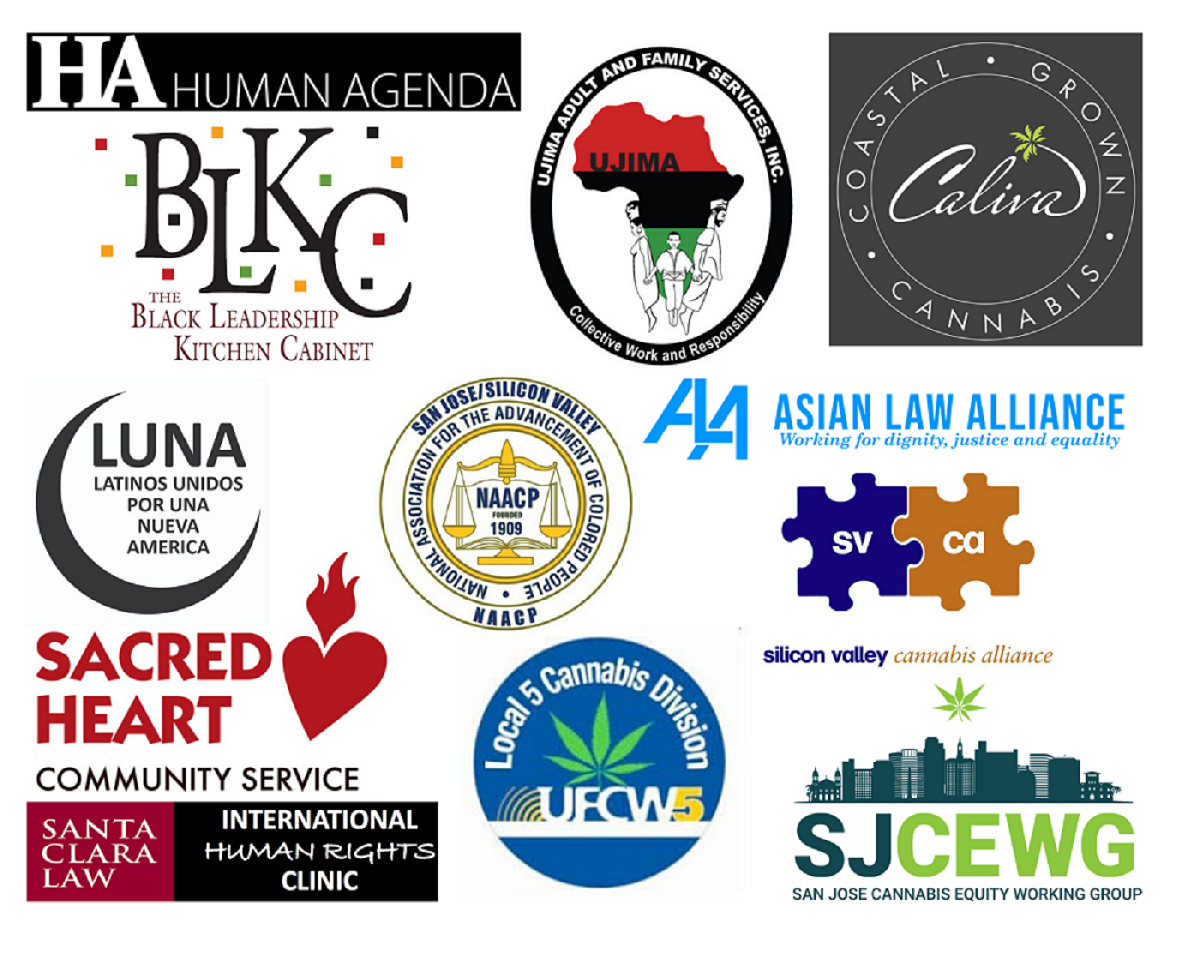
Universal Cannabis Record Clearance Coalition*
- Human Agenda
- The Black Leadership Kitchen Cabinet
- Caliva
- Asian Law Alliance
- Silicon Valley Cannabis Alliance
- San Jose Cannabis Equity Working Group
- UFCW5
- Santa Clara Law International Human Rights Clinic
- Sacred Heart
- LUNA, NAACP San Jose/Silicon Valley
- UJIMA.
People’s Budget of San José
In 2020 the SJSU HRI partnered with Sacred Hearth Community Services to launch the People’s Budget of San José research project, funded in part by the Heising-Simons Foundation. The purpose of the PBSJ was to inform the City’s Re-Imagining Public Safety Community Advisory Committee [RIPS] recommendations to City Council on criminal justice and related budget reforms. The PBSJ study produced three reports (background, focus groups, and city wide survey) in this process, and the RIPS recommendations will be considered by Council in October – November of 2022. For copies of the PBSJ reports, more on the findings of these reports, and a (video) discussion of the findings, please visit our PBSJ page.
The California Law Enforcement Accountability [CLEAR] Act [pdf]
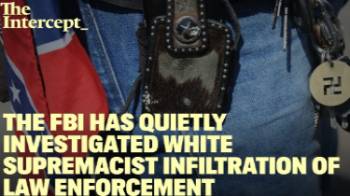 Following countless reporting from journalists and federal agencies on the infiltration of law enforcement agencies and threat of mass terror now clearly posed by right wing extremist organizations, the SJSU HRI is aggressively
pursuing meaningful policy solutions.
Following countless reporting from journalists and federal agencies on the infiltration of law enforcement agencies and threat of mass terror now clearly posed by right wing extremist organizations, the SJSU HRI is aggressively
pursuing meaningful policy solutions.
Institute faculty have been working with state and federal lawmakers, relevant legal
scholars, and community organizations to research and design the California Law Enforcement
Accountability [CLEAR] Act. The CLEAR Act is the first of its kind in the U.S. designed
to effectively prohibit anyone with membership in or significant affiliation with
right wing extremist organizations from serving in any CA law enforcement agency.
Now supported by Public Defenders, District Attorneys, Civil Liberties advocates (ACLU),
and community organizations across the state, the CLEAR Act has passed both houses
of the California legislature and awaits the Governor’s signature!
Governor Newsom Signs Bill Co-Sponsored by SJSU’s Human Rights Institute Into Law
Last month, California Governor Gavin Newsom signed California AB 655, the California Law Enforcement Accountability Reform (CLEAR) Act, a bill co-sponsored by San José State University’s Human Rights Institute (HRI) and the California Faculty Association, into law. The law requires that peace officer candidates be screened for affiliation with hate groups or involvement in hate crimes. It also establishes a protocol for public reporting of law enforcement officials with a record of hate crime activities.
Extremist in Uniform puts the Nation at Risk
America needs to reduce this threat. In recent years, the majority of political violence has come at the hands of members of right-wing extremist groups or unaffiliated adherents of their white supremacist and antigovernment ideologies. This editorial board argued in the first of this series that better enforcement of state and federal laws banning private paramilitary activity could help dismantle some of the groups at the vanguard of this violence.
Care First Jail Last Coalition in Santa Clara County
SJSU HRI faculty wrote one of the two policy guiding reports [pdf] on jail conditions in Santa Clara County following the brutal murder of Michael Tyree in 2015. Both of these reports detailed horrific conditions and treatment that clearly
violated the Constitutional and Human Rights of inmates, including but not limited
to an unsanitary environment, routine abuse by guards, and lack of access to needed
medical care or contact with the outside world. Following these reports, three hunger strikes held by prisoners supported by their families and communities were staged over approximately
five years to continue fighting for jail reform. Meanwhile, the SCC Board of Supervisors
were on a path to build a new jail facility in addition to much needed improvements
to existing jail facilities in response to suits and legal decisions since Tyree’s
murder.
Under the leadership of our partners at Silicon Valley DeBug, we are now working closely with system impacted families and communities to build
fully functional, viable alternatives to incarceration (jail) in Santa Clara County.
The coalition previously succeeded in stopping the plans to build a new jail in SCC, and in establishing an Alternatives to Incarceration Report [ATI] and working group.
Since then, the SCC BOS has voted to cancel plans for a new, approximately $600M jail with contractor
JE Dunn, and will re-open community engagement on the building of an alternative facility
in September 2022.
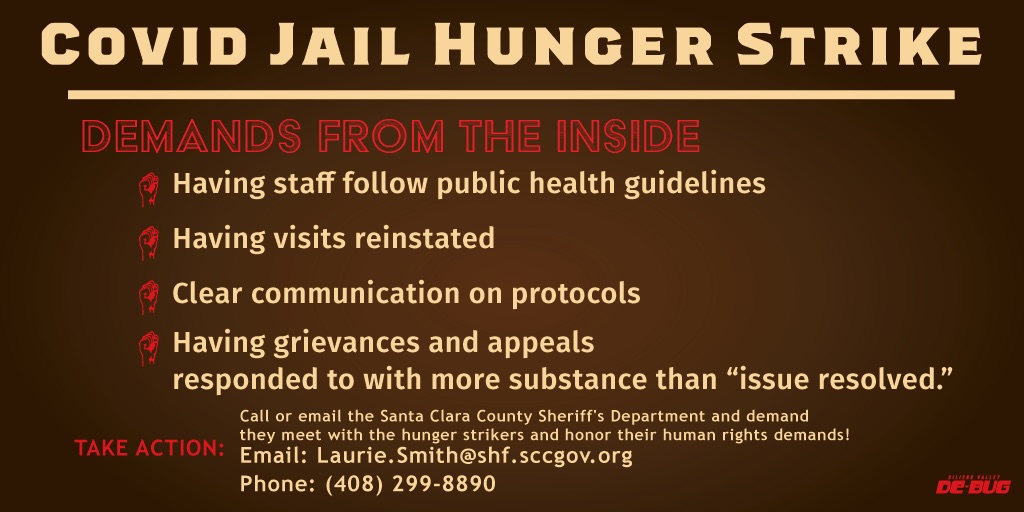
After 9 days - those inside Santa Clara Main Jail have stopped their hunger strike
after getting several key demands met. But they are asking for supporters to keep
pressure on jail admin to ensure promises are kept and health standards are honored.
Please see the detailed report from our partners at SV DeBug [pdf]
Outgoing Supervisor Dave Cortese on Board of Supervisors Decision to Consider Alternatives
to Incarceration
For more information on this movement in our county, see the following statements
from system impacted organizers here:
DeBug Statement on Stopping the Building of a Jail in Santa Clara County
Dismantling the Architecture of Incarceration
Cannabis Policy Reform in San José and Santa Clara County
Equity Program Phase I and II
In brief, cannabis equity programs are designed as forms of restorative justice—where some of the opportunities and revenues of the legal cannabis market are reserved for the people and communities most disenfranchised by decades of failed criminal prohibition.
Institute faculty consulted on the Equity Program Ordinance in San Francisco [pdf], Statewide policy in Sacramento, and authored the San Jose Cannabis Equity Assistance Program Ordinance (01/10/19) locally. After writing the San José Cannabis Equity Assistance Ordinance—Phase I of the San José Cannabis Equity Program—the SJSU HRI wrapped consultations with the City on Phase II in February of 2020. Phase II (retail) has now been released (2022), where up to 10 delivery licenses and 5 retail dispensary licenses will be made available to qualified equity applicants who complete the city’s “equity academy.”
In addition to helping the city secure over $500K in funding to build and implement Phase I of the program and conduct the necessary equity study for Phase II, HRI faculty will continue to serve as a public resource for the City and impacted community members as the equity academy opens and Phase II is implemented.
Check out the San José’s Cannabis Equity Program here for more information or to see if you qualify.
Reforming California and Federal Law to Meet International Human Rights Standards on Police Use of Deadly force
CA AB 392 and the PEACE Act
The faculty and students of the SJSU HRI are working hard to address the nearly 1000 fatal police shootings a year in the U.S.—the highest rate in the developed world. This police violence is targeted overwhelmingly at people of color, the poor and dispossessed, LGBTQ populations, and those struggling with mental illness. Though this work continues, the HRI collaborated with community organizations and policy makers to establish significant policy solutions at the state and federal level.
Institute faculty and students participated in the statewide coalition to draft and successfully pass CA AB 392, the California Act to Save Lives.* AB 392 brings CA police use of deadly force standards in line with international law and standards that prioritize the human (and Constitutional) rights to life and due process. Specifically, the HRI provided documentation and information on international standards on police use of deadly force. As a result, California now has one of the strictest use of force standards in the country (along with Washington state). *Signed into law on 08/19/19.
Institute faculty then worked with Congressman Ro Khanna to research and help to draft the PEACE Act [pdf], a bill that brings the law defining police use of force in line with international standards for all federal law enforcement and provides necessary incentives for states to revise their laws in kind. The PEACE Act represents an enormous opportunity to scale policy reform up to the federal level and bring this reform to other states. Please see the SJSU HRI Director and many other policy experts quoted in the press release of the bill.
Improving the Human Rights of Immigrants and Migrant Workers
Ending the 50-Mile Rule
Immigrant, migrant worker, and refugee rights have long been an area of expertise for Institute faculty and Human Rights Minor Program students. In addition to working for 2.5 years with the DALE Coalition in Santa Clara County to provide DACA/DAPA assistance to thousands of families in need, Institute faculty and students organized with Human Agenda and other partners to make sure the thousands of migrant children in the state have access to public education.
After many years of organizing with Human Agenda and other partners, the California legislature effectively ended the “50-mile rule” that prevented many children of migrant workers from attending public schools without constant interruption.



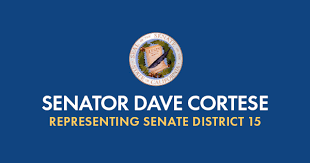 The Silicon Valley Pain Index, a meta- analysis crafted by San José State University’s Human Rights Institute that revealed Santa Clara County’s growing racial and wealth disparities along with
a troubling trend of housing and food insecurity among young adults, inspired a pilot
program to serve unhoused students in Santa Clara County that was led by Santa Clara
County Supervisor Susan Ellenberg and California State Senator Dave Cortese.
The Silicon Valley Pain Index, a meta- analysis crafted by San José State University’s Human Rights Institute that revealed Santa Clara County’s growing racial and wealth disparities along with
a troubling trend of housing and food insecurity among young adults, inspired a pilot
program to serve unhoused students in Santa Clara County that was led by Santa Clara
County Supervisor Susan Ellenberg and California State Senator Dave Cortese.